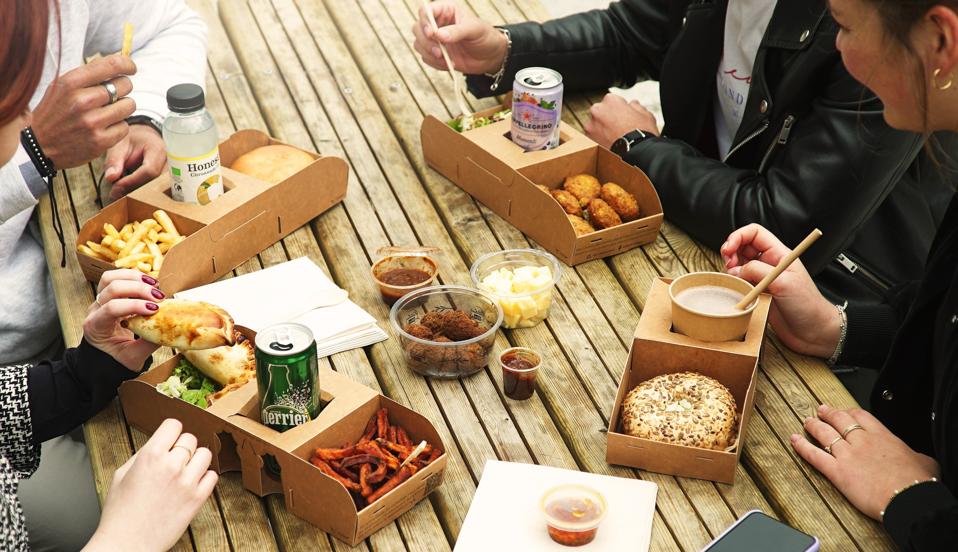Waste management isn’t a sexy topic. It simply does not mesh with the glamorous ideas most fans have about elite level sports. But at a time where every tenth of a degree added to the Earth’s global temperature inches humanity closer to a world in which species survival is in question, there are fewer things more important — save the immediate halt of fossil fuel extraction — than finding ways to efficiently reduce and eliminate unnecessary waste.
Each year in France 10 tons worth of CO2 emissions are produced due to stadium waste. Moreover, according to a report released by The Shift Project, 15% of the carbon footprint from the average sporting event in France comes from catering-related emissions. Behind the scenes, there are countless organizations that play a vital role in improving operational efficiency and innovating alternative methods to eliminate excess and unsustainable products. As the sports sector continues to place increasing emphasis on environmental sustainability, sports organizations will need to seriously reassess the quantity of waste they produce at each event and find ways to reduce it.
Founded in 2019, French company Flycup has developed a simple, but effective way to dramatically reduce the quantity of concession-related waste at live events, while improving the fan experience and providing a new space for brand visibility. The company’s relative success in its first five years has attracted a new investor, who perhaps does bring some glitz to the waste management arena: former San Antonio Spur, Tony Parker.
The Marseille-based company already works with heavyweight sports organizations including PSG and Olympique Marseille, as well as major French stadiums such as the Stade de France,the Adidas Arena and the LDLC Arena. Flycup delivers two products, “Flycup for menus,” and “Flycup for drinks,” which simply put are recyclable cardboard food and drinks carriers that eliminate the need for excess plastic dishware. The added benefit is that they only require one hand to hold, therefore freeing fans to enjoy the moment a bit more, instead of worrying about how they will bring their order of game day food and drinks back to their seats.
According to founder Olivier Rousseau, Flycup was created with two objectives in mind, “to revolutionize the food and fan experience in sports and reduce carbon footprint and waste.” So far, the company seems to have done just that. Kevin Grenadille, Deputy Director of Operations at Sodexo Live! remarked on Flycup’s impact saying “Flycup is part of an initiative to improve the customer experience. The feedback has been very positive, and it has enabled us to increase our sales while being more eco-responsible.”
To ensure that their product not only reduces waste but is also made as sustainably as possible, Flycup’s ownership group has gone to great lengths to create an environmentally responsible supply chain. According to Olivier, the craft cardboard used in production is all from an FSC forest, meaning the company does not contribute to deforestation of any kind. Moreover, Flycup does not use any plastic film in production, and it employs vegetable-based ink for any writing and coloring. The result is a product sourced, produced and transported from a factory in France to partner sports organizations and venues.
Despite the company’s relative success, and the addition of star power in the form of Tony Parker, the six-man Flycup team refuses to rest on its laurels. Olivier says the company is already working on what he calls the second stage, which is a new range of zero waste packaging solutions. The prototype, which will be made of reusable plastic, will be ready in June. As opposed to the current recyclable cardboard food and beverage carriers it currently produces, the stage two plastic model will be used on game day and then returned by fans in the proper receptacle at the stadium. Once the event is over the plastic carriers will be washed and ready for reuse at the next event.
The final stage of Flycup’s waste management plan is to introduce its own containers into stadiums to collect event waste. These containers will double as advertising space which Olivier and his team plan to fill with awareness building slogans and eco-friendly behavior change guidelines.
In only five years, two of which were during the COVID-19 pandemic, Flycup has developed a strong reputation in France. Working with some of the top sports organizations, Olivier claims that the company has helped upsell menus on gameday by 18%, saying that the convenience of the product allows consumers to purchase more food and drinks. According to an independent Life cycle Assessment of Flycup products carried out by SAMI, Flycup has reduced the catering carbon footprint of the venues it works with by 28%, while providing a new space (the side of the carrier) for brands to be visible. Julien Guermyet, Senior Sponsorship Manager at PSG, attests to this, stating, “Flycup is all about creative and innovative initiatives. For the Club, the objective is twofold: to offer new visibility to our partners, and to provide spectators with an enhanced consumer experience.”
Having developed success in France, Flycup is now looking beyond its home borders to the biggest sports market in the world, the U.S. Whether there is interest in the product remains to be seen, but first the French company must focus on scalability. When asked how scalable the product is, Olivier responded saying “we are asking ourselves this question.” He noted that to remain true to the company’s sustainability vision it “cannot produce in France and do the shipping to the U.S.” calling that idea “nonsense.”
With major tournaments coming to the U.S. in three consecutive summers, alongside the normal complement of concerts and American sports leagues, there appears to be enough space in the market for Flycup to exploit. Olivier is optimistic, saying Parker’s addition has added credibility and visibility to the French startup. Now, the question is can Flycup’s new star power get it in the door, and help it reduce emissions in U.S. sports.

